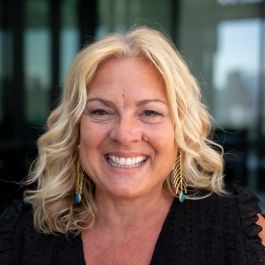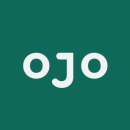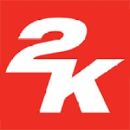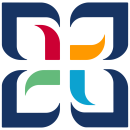“Show, don’t tell” is a concept novice screenwriters often struggle with. Having one character describe another as kind and gentle is easier than writing a dialogue-free scene that shows those traits in relation to the world.
Tech companies can also struggle with doing too much telling and not enough showing, especially when it comes to creating a people-first culture.
One way for a company to show its people-first culture is in the design of its benefits program. Jennifer Bacon, VP of people operations at real estate tech company OJO, told Built In Austin that one of the company’s goals is to enable employees to “thrive,” accomplished by taking a holistic approach to its benefits package, which includes parental leave, a Talkspace subscription and wellness weeks.
Restaurant and hospitality management software company Fourth shows its people-first culture through its responsiveness to feedback, with employee input directly shaping the content of one of its leadership development programs.
A people-first culture can also be shown in a company’s products. For example, one of the values at 2K is “come as you are,” and Steven Myers, VP of human resources, said this influenced the development of one of its recent titles, “Tiny Tina’s Wonderlands.”
“Tiny Tina’s Wonderlands was notable because the development team was primarily women and reflected their voices and experiences through the character and in-game quests,” Myers said.
OJO, Fourth and 2K are all hiring, and you can read more about their people-first cultures from the leaders who helped bring them to life below.
OJO is a real estate tech company that helps home buyers find their perfect place and sellers get the best price. In addition to the real estate market, OJO also offers solutions for homeowners to track their equity, their home’s current value and ways to organize household to-do’s.
What steps has your company taken to foster a people-first culture?
Our team is our strongest asset, and it’s very important to us that we put our people first. This became even more important as we switched to working from home in March 2020. Our North Star as a people operations team is to foster an inclusive work environment that allows all employees to thrive, grow and lead. We like to put an emphasis on meaningful connection and offer a variety of opportunities for our employees to connect with each other, whether in person like at our first annual women’s summit or virtually through a team Zoom event.
We also like to host in-person events at our office, like our yearly chili cook-off or team Thanksgiving. It’s important to us that employees feel comfortable bringing their whole selves to work, and that starts at the top with our CEO having his kids make guest appearances during all team meetings.
Our wellness program focuses not only on physical and financial benefits but also community, career and mental wellness.”
What perks, benefits or other offerings help support a people-first company culture?
Our team has been intentional about creating an inclusive wellness program that addresses an employee’s entire self. Our wellness program focuses not only on physical and financial benefits but also community, career and mental wellness. For example, OJO offers baby bonding time for all parents, including foster and adoptive parents.
Because of our commitment to ensure our employees have access to affordable healthcare for themselves and their families, we offer a free medical plan option for employees and their dependents. Mental wellness is a key component of our wellness strategy, too. We provide our employees paid company holidays, flexible time off and the occasional surprise “OJO-unplugged” day.
We have wellness weeks twice a year, one in the summer and one week in the winter. It’s one of our employee’s favorite benefits as it gives our teams the chance to rest, recharge, spend time with family and feel like work isn’t piling up while they do so. Last year, we made an additional investment in mental health by making Talkspace available to all of our employees and their dependents at no cost.
How do you gauge the effectiveness of these efforts and ensure employees feel valued and supported? And what are some ways you’ve adapted your strategy in response?
We regularly survey our employees, including a robust twice-annual employee satisfaction survey. We read the results back to the company and then do department deep dives to focus our attention. It’s important to give our employees a voice and truly listen to what they want and need rather than assume we know best. We utilize the results from the surveys to help guide our roadmap for how we develop and adapt our wellness program, policies and procedures and regularly share our results and action plans in company syncs.
Many of the benefits and perks mentioned previously have come from feedback from these surveys. One of our core values is “relentlessly improve,” and regularly surveying our employees gives us the data we need to do this as an organization and offer a best-in-class employee experience across our teams.
2K is a video game company whose franchises include “NBA 2K,” “BioShock” and “Sid Meier’s Civilization.” The company is headquartered in Novato, California, and has offices across the world, including in Tokyo, Montreal and London.
What steps has 2K taken to foster a people-first culture?
At 2K, we’re focusing our culture on our core value “come as you are.” This means our employees have the right to be their true selves at work and feel supported to do their best work. 2K works to empower employees to support one another in building community and their sense of belonging through social events, guest speakers and listening sessions.
We’re applying this value in our games as well, with the aim of having that culture be reflected in the titles we make. Earlier this year, 2K produced “Tiny Tina’s Wonderlands,” which was notable because the development team was primarily women and reflected their voices and experiences through the character and in-game quests. In the spirit of embracing different perspectives, 2K has also established seven employee resource groups: 2Gether@2K, AAPI@2K, Black@2K, Unidos2K, Women In Gaming, MIND, and One2K. Each has a shared goal of ensuring representation within the company and across 2K’s games to reflect greater diversity in the gaming industry.
Building an inclusive culture is best facilitated by listening to your most underrepresented employees and hearing how they view the company.”
What perks, benefits or other offerings help support a people-first company culture?
2K prides itself on offering employees market-competitive benefits. In addition to medical, dental and vision benefits, our wellness benefits include the mental health coaching platform Ginger, an employee assistance program that provides family care resources along with financial and legal services, and Maven, family health support for services that include fertility treatments, egg preservation, surrogacy and more. We provide more than 15 vacation days per year along with parental leave and bonus wellness days.
An onsite gym, extensive video game library and catered lunch on Wednesdays are just a few of our office perks. Additional perks include a 401(k) plan and employee stock purchase plan, a flexible work environment and commuter benefits. While our benefits require eligibility, pending employment type and location, 2K is confident that those who are eligible receive a broad range of benefits.
How do you gauge the effectiveness of these efforts and ensure employees feel valued and supported? And what are some ways you’ve adapted your strategy in response?
2K is committed to creating a positive experience for its employees as well as affirming their sense of belonging and connectivity in 2K’s games. Building an inclusive culture is best facilitated by listening to your most underrepresented employees and hearing how they view the company. For example, in addition to our seven ERGs, 2K has implemented frequent employee surveys and regularly takes the pulse of its global workforce with listening C-suite executive sessions that serve as a time to check in and connect.
As we strive for great diversity within our walls, we’ve implemented various tactics to recruit new voices and give careers to all the communities who love to game. In 2021 we created internship opportunities for HBCU students and invited local students from all towns in the Bay Area to participate in live game production. Additionally, we are being intentional in representation and ensuring that we are inclusive in our employer branding.

Fourth’s hospitality and restaurant management platform provides solutions for making and managing schedules, employee engagement, payroll, and more. Topgolf, Burger King and Buffalo Wild Wings are just a few of the company’s customers.
What steps has Fourth taken to foster a people-first culture?
We launched a global culture initiative that began with data triangulation across an employee pulse survey, focus groups and interviews with executives. We just completed the pulse survey and plan to launch the action plan for our culture initiative in January. We piloted our “accelerate” program this year, which provides funding for employee development and the opportunity for applicants to present to the executive and senior leadership teams. We also launched Lead Fourth, a development program for our senior leadership team and have completed two courses thus far.
We are also completely revamping our onboarding process to increase engagement, improve the experience and accelerate time to productivity. Moving into compensation, we recalibrated our salary ranges using Radford. Based on feedback, we are also implementing a new human resources information system next year as well as building career pathing, modernizing our performance management process and implementing succession planning. Feedback also provided the impetus to build a new intranet site that will provide employees access to the information they need.
We piloted our ‘accelerate’ program this year, which provides funding for employee development and the opportunity for applicants to present to the executive and senior leadership teams.”
What perks, benefits or other offerings help support a people-first company culture?
We want all employees to feel comfortable bringing their whole selves to work and our DEI team and Women’s Initiative Networking Group (WING) support employees across the globe. Also, employees spend time contributing to charitable events to support their local communities.
Fourth’s leadership believes in transparency, so we hold all-hands sessions monthly to ensure the entire company is up to date on our goals, progress and future plans. Next year we’ll implement a new segment in which each executive leadership team (ELT) member will share tools that have helped them throughout their career. This will provide access to the ELT for all employees and the opportunity to engage with them in new and different ways.
We also hold global, biannual wellness weeks. We offer expert advice, guidance and services from outside vendors, presentations from wellness experts, wellness boxes, targeted information sessions from our benefits providers and a walking challenge, with teams made up of employees from around the globe. In terms of benefits, we offer unlimited PTO, health, dental, vision, a 401(k) match, charity days, parental leave and a flexible work environment.
How do you gauge the effectiveness of these efforts and ensure employees feel valued and supported? And what are some ways you’ve adapted your strategy in response?
Engagement surveys are a good way to measure the success of our programs. We also use post-initiative surveys to measure effectiveness. As an example, we are completely flexible with our senior leadership development program, Lead Fourth, and are taking feedback immediately after each session to inform what we need to change in future sessions. Also, our global focus groups will remain intact through the launch of our culture initiative, which was a suggestion made by an APAC leader.
Beginning in 2023, we will hold all-hands meetings quarterly with more updates from around the globe and will use the two months in which we don’t have all-hands meetings to focus on ELT knowledge-sharing sessions as well as spotlighting various departments and locations. The all-hands meeting will be better structured by implementing three sections: people, business and a new slot for rotating topics including “storytelling” for examples of how customers are using our products. We also receive questions and comments in the chat sessions of our all-hands meetings, some of which are anonymous so that employees are comfortable raising concerns and asking questions.









